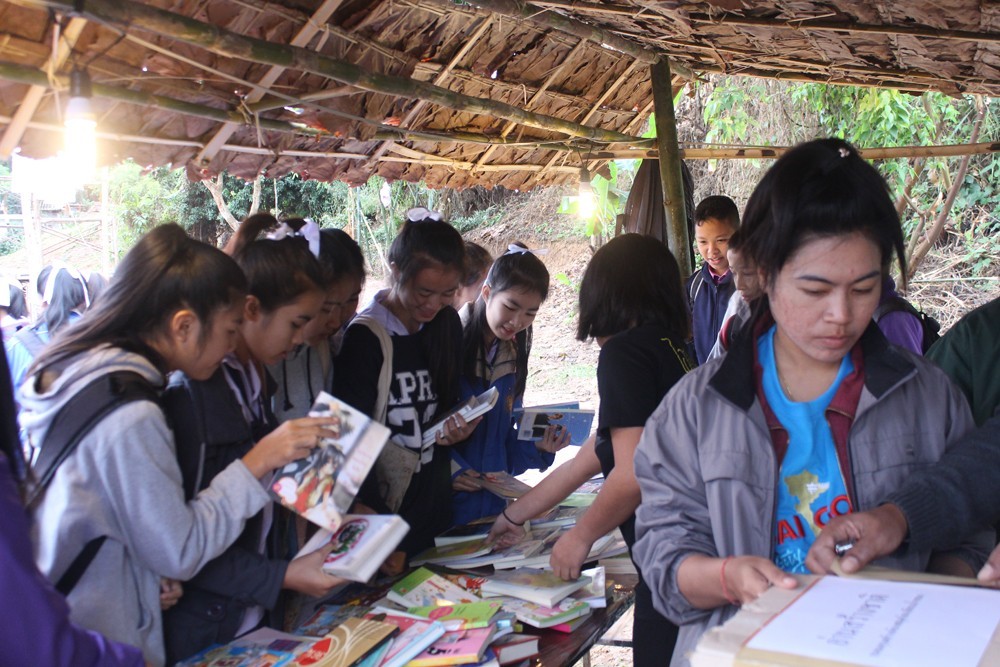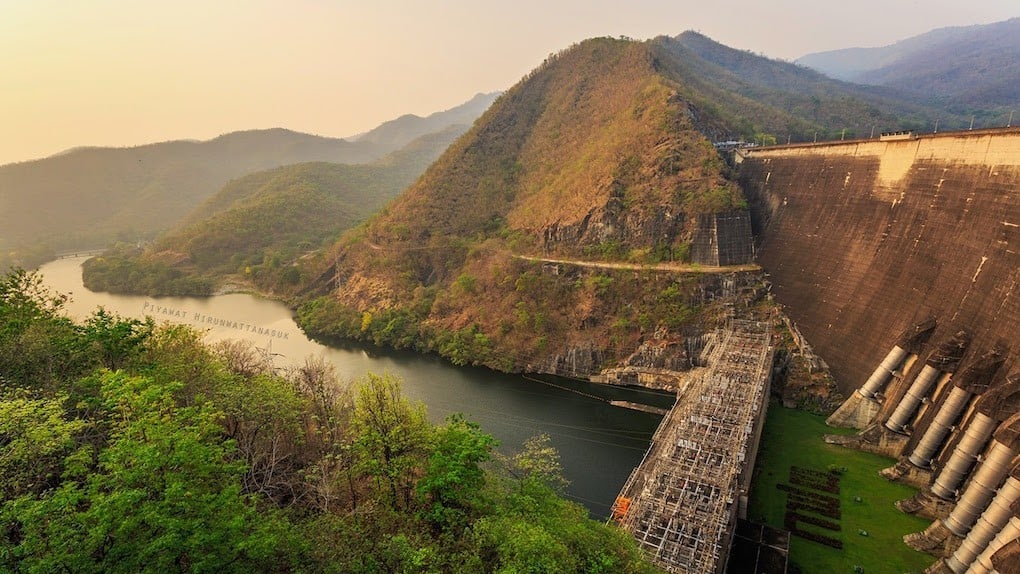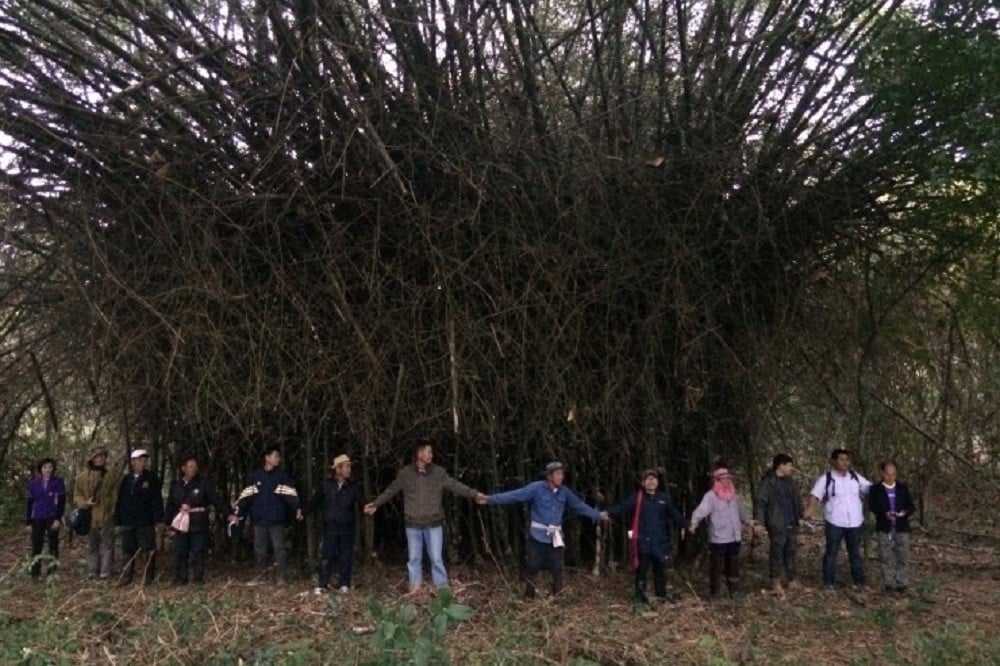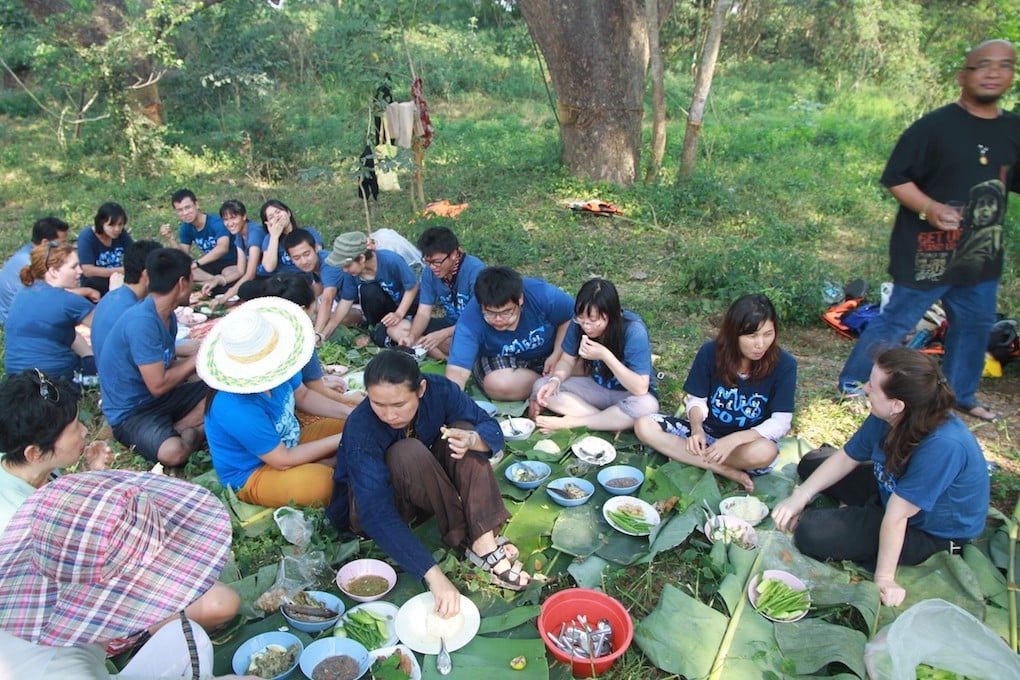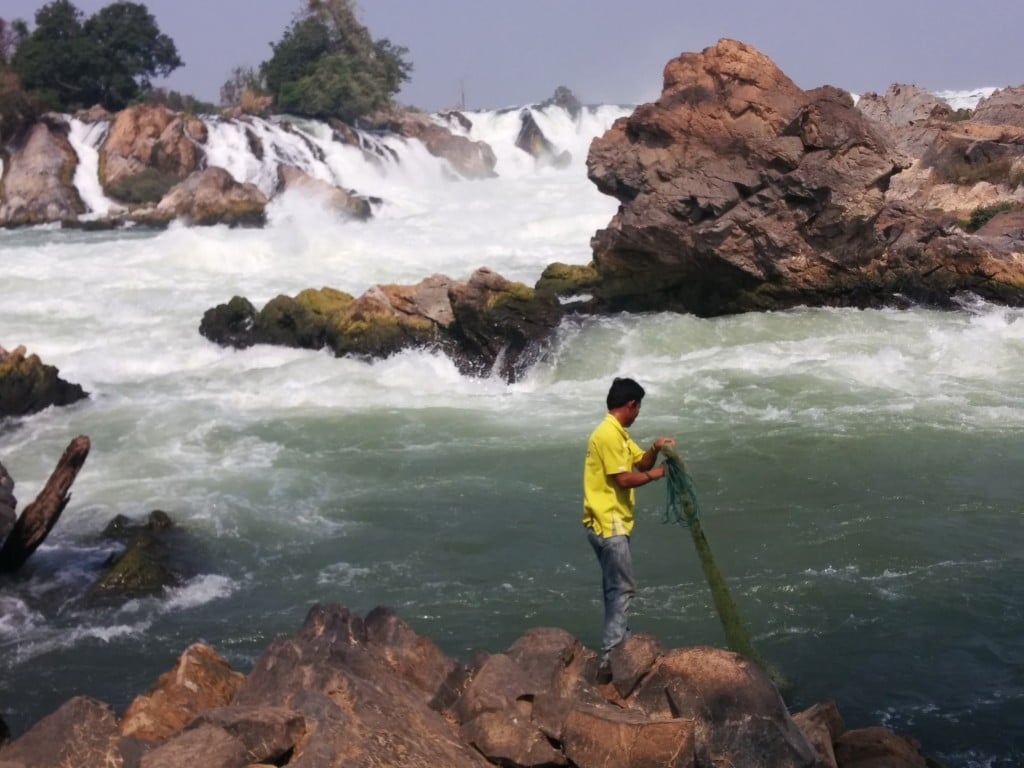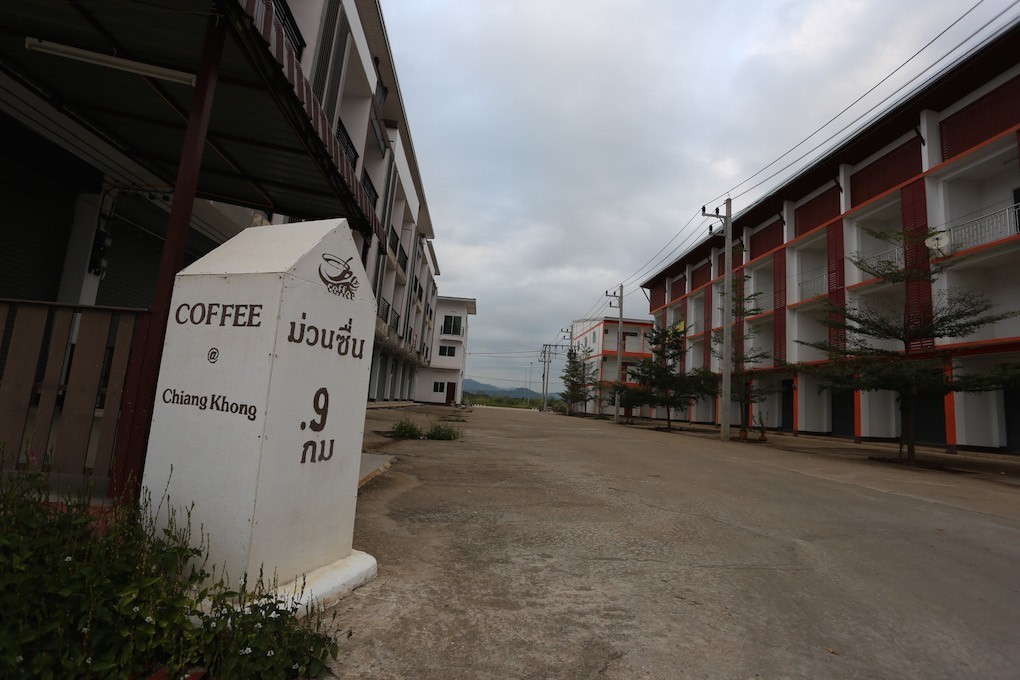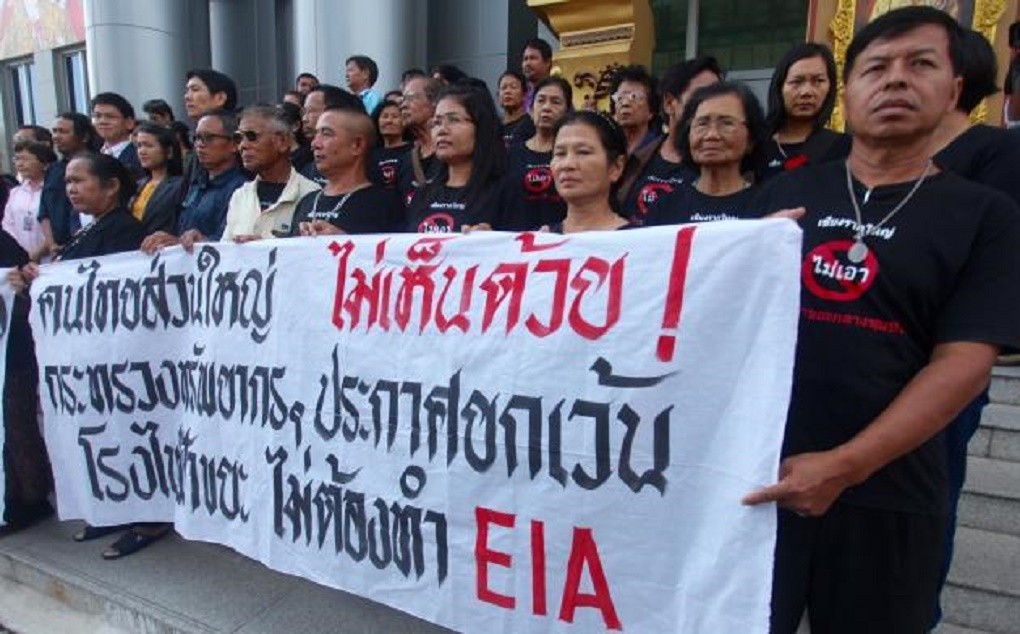Last week, the group of Thai Society of Environmental Journalist and Thai Journalist Association together with 15 news outlets went to Chiang Kong district in Chiangrai province to follow up on the progress of the establishment of the second phase of Special Economic Zone, and the impact on the surrounded communities. They also attended the opening of Mekong School, which is situated on Mekong River bank in Chiang Kong River. Mekong School is set up under the philosophy “Respect for nature and Faith in humanity justice” by villagers and different stakeholders to provide learning space Mekong ecology, culture and environment of Mekong River. Under “Field of Learning” concept, Mekong School provides knowledge on Mekong River history, local cultures and academic researches on Mekong. The school also plans to set up Mekong Library for database and research purposes.
Category: Thailand
Water management requires a more holistic view
As of Tuesday, the combined amount of usable water retained in seven major dams, including Bhumibol and Sirikit, that feed the Central plains stood at around 3,300 million cubic metres, or 18 per cent of their combined capacity of around 24,700 million cu.
The National Water Resources Committee (NWRC) came up with this figure at the end of November as it does every year, and after seeing these numbers, I must say it is of serious concern and I wonder how we will be able to survive yet another drought.
Is SEZ on Boon Reung forest; destroying Chiang Khong and Mae Kong River?
There is high possibility that the Special Economic Zone will take away more than 1,190 acres of Boon Rueng forest from the community. There is also equally possibility that the Mekong River ecosystem will be destroyed if Boon Rueng forest transform into Special Economic Zone according to Thailand’s Prime Minister Gen. Prayuth Chan-ocha’s vision. The abundant Boon Rueng forest in this wetlands is currently being nominated for SEZ consideration by Joint Public Private Committee, Office of the Permanent Secretary of Interior. If approve, half of the forest will be replaced with factories. According to the survey, there are more than 60 species of plants and 211 species of animal, especially endangered species such as Fishing Cat in Boon Rueng forest. Obviously, Boon Rueng forest is not ‘degraded forest’ as it was claimed.
Administrative court rules in favour of Egat over Xayaburi Dam
THE Administrative Court Friday dismissed complaints over the Xayaburi Dam against five state agencies. However, the 37 plaintiffs, from eight Mekong provinces, say they will appeal further.
The judge, who read the verdict, said the defendants had fully complied with their obligation according to the law, so the case was dismissed.
Villagers from Bamnetnarong district visited 5 ASEAN Embassies , protesting coal-fired power plant
More than 30 representatives from Bamnetnarong District in Chaiyapoom province submitted a letter to ASEAN diplomatic representative, protesting the coal-fired power plant for Potash mining project. The content of the letter stated that ASEAN Potash Mining Company Limited (Public) is pushing the construction plan of coal power plants for use in the mining operation, informing the villagers that Thailand shortage of energy. And the villagers against the use of coal for electricity generation.
Japan raises stake in Dawei project
The Thai Cabinet today approved the proposed increase in Japan’s stake in the Dawei development project to 33.33 per cent. Under the Finance Ministry’s proposal, the stakes of Thailand and Myanmar will fall from 50:50 to 33.33 per cent. The investment remains capped at Bt100 million per each country.
Sansern Kaewkamnerd, the spokesperson of the Prime Minister’s Officer, said that the change followed Deputy Prime Minister Somkid Jatusripitak’s visit to Japan.
Transport Minister Arkhom Termpittayapaisith said that the three parties would meet on December 14 with the high-level working group and Dawei Development Co Ltd’s representatives.
Kaeng Sua Ten dam project: three decades of heroic community struggle
After 30 years, community-led anti-Kaeng Sua Ten dam movement is still hailed as a watershed of Thailand’s environmental conservation. Villagers have not only argued for their rights to protect livelihood and natural resources, but also articulate socio-economic losses if the project is to be built. The dam, proposed by the Royal Irrigation Department, would inundate many villages and Thailand’s last teak forest ecosystem in the Mae Yom National Park in northern Thailand. Environmental economic studies find that environmental opportunity losses will be greater than gains from flood control and irrigation as promised by the project.
Report: Economic, Environmental and Social Impacts of Hydropower Development in the Lower Mekong Basin
The Mekong River is the largest freshwater fishery in the world (estimated fish catch 2.1 to 2.5 million tons/year) and the third most bio-diverse river system (with approximately 800 fish species) after the Amazon and the Congo. However, this would change drastically if all proposed hydropower projects are constructed as fish migration routes would be blocked.
This paper focuses on potential economic consequences and is based on the Costanza report which in turn used much of the data, assumptions and projections reported in BDP2 and SEA. The main differences between the Costanza report and BDP2 were the estimated fish value, valuation of ecosystem services and discount rates for natural capital such as capture fisheries and wetlands.
Ghost town ‘forgotten’ in Chiang Khong border trade
The freshly painted welcome signs at Chiang Khong market are conspicuous, greeting visitors as they cross the border from Laos. Few arrive however, and behind the signs they see only shuttered shops and scattered clothing sellers.
The “new town”, as some business operators called it after the opening of the fourth Thai-Lao Friendship Bridge across the Mekong River in 2013, is now known as a ghost town by locals.
Once a bustling trade development area, the market located just a kilometre from the bridge, has been a flop and doesn’t seem to be able to attract tourists.
But there is a chance the market could be resurrected, after Prime Minister Prayut Chan-o-cha’s government announced Chiang Rai would be the location for the second phase of the Special Economic Zones, set to be launched this year.
Villagers fight waiver of EIA for power plants
REPRESENTATIVES of people from seven provinces yesterday filed a complaint with the Central Administrative Court in Bangkok calling on the Natural Resources and Environment Ministry to revoke its announcement waiving environment impact assessments (EIA) for waste-fired power plants.


